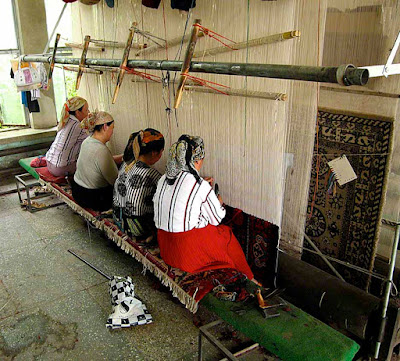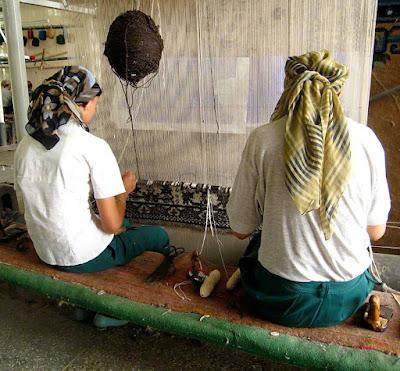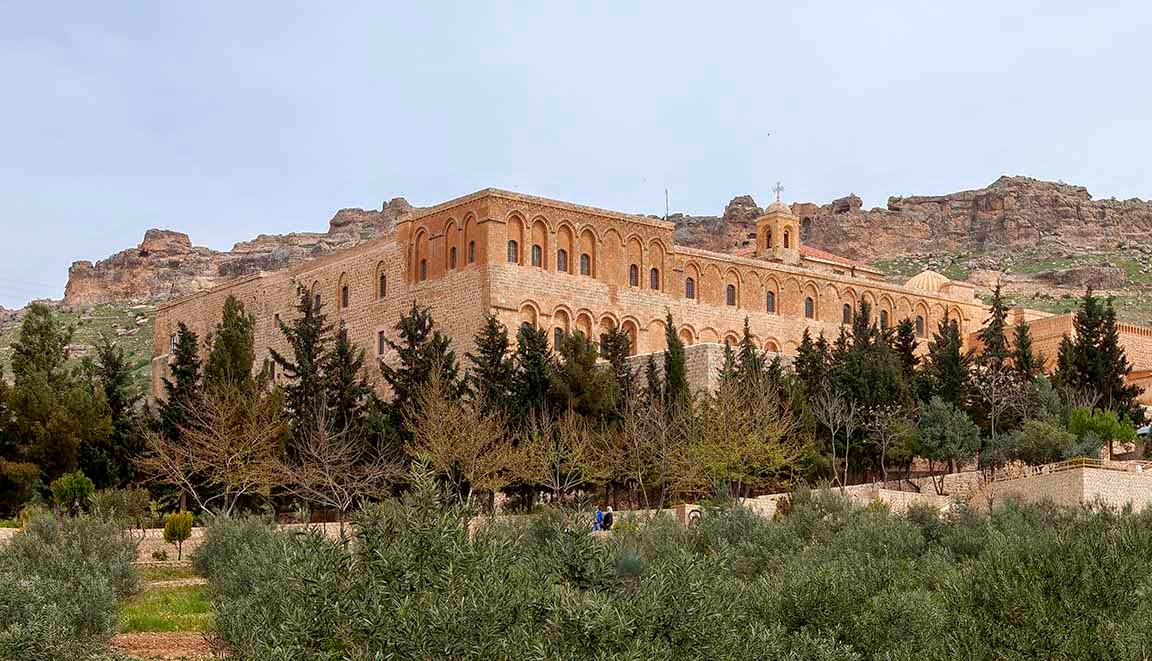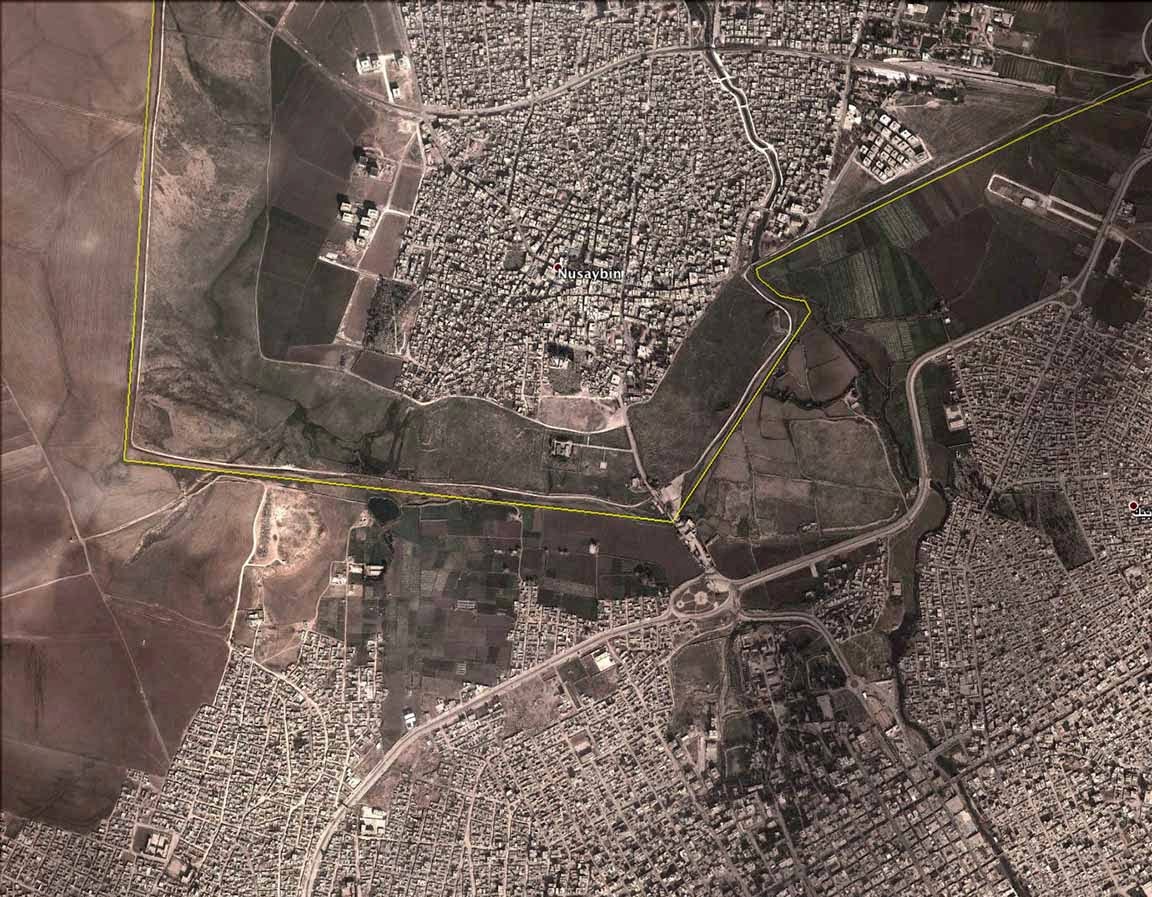China | Xinjiang | Khotan | Carpet Factory
Wandered by the carpet factory in Khotan. A friendly Uighur woman who spoke a little bit of English explained to me what was going on. Although they made the silk carpets here for which Khotan is so famous, at the moment they were making only wool carpets. They use both Chinese and Uighur designs. A 1.2 x 1.8 meter wool carpet takes two people two months to make. A 3.3 x 4 meter carpet takes five people two months to make. A mammoth 15 by 20 meter (50 by 65 feet) carpet, one of the largest ever made here, and now on the wall of the Great Hall of the People in Beijing, took fifteen people four months to make. In the sales room (where, curiously, photography was not allowed) I was shown a 4.3 by 6.8 meter (14 by 22 feet) carpet selling for about $2400). This was wool of course. Silk carpets are much, much more expensive. A four-by-six-foot silk carpet could easily sell for $6000-$8000 even here in the factory. Back in Urumqi, in the carpet store at the Provincial Museum, I was shown a 14 by 22 inch rug (that’s inches, mind you) that was selling for a whopping $5800). This was a 1200 knots per inch with a very special design. Obviously this small piece was intended as a wall hanging, a work of art, and not a carpet to be trod on; it was barely big enough to serve as a door mat.
Women working in the carpet factory (click on photos for enlargements)
Woman working in the carpet factory
Woman working in the carpet factory
Women working in the carpet factory
Even back in Beijing I had been informed by knowledgeable people that the women in Khotan are renowned all over Xinjiang for their beauty. My friend, a Uighur from Ili, in northern Xinjiang, could not keep a note of envy, even jealousy, out of her voice when talking about the women of Khotan. Such eyes! Like amber and obsidian! Such hair! Like Khotanese silk (of course)! Such eyebrows! Like young willow leaves! Such straight noses! Like carved from jade! Such lips! Like ripe pomegranates! Such breasts! Like Hami melons! she kept raving. All Xinjiang men want a wife from Khotan, she claimed. Xuanzang, the peripatetic Chinese monk who visited here in 644, was noticeably silent on this issue, however. Marco Polo also visited Khotan, in the thirteenth century, and although he had much to say about the women of Hami—another town in Xinjiang—who were renowned for their unbridled sensuality, if not necessarily for their beauty, apparently none in Khotan caught his fancy, or at least none that he cared to write about.
Khotanese beauty working in the carpet factory. Note the young-willow-leaf-like eyebrows and carved-from-jade-like nose.
Another Khotanese beauty working in the carpet factory. Note the amber-and-obsidian-like eyes.








